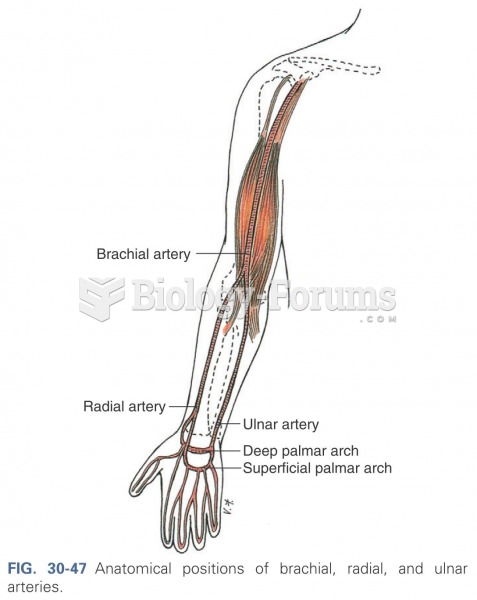|
|
|
By definition, when a medication is administered intravenously, its bioavailability is 100%.
Nearly all drugs pass into human breast milk. How often a drug is taken influences the amount of drug that will pass into the milk. Medications taken 30 to 60 minutes before breastfeeding are likely to be at peak blood levels when the baby is nursing.
Coca-Cola originally used coca leaves and caffeine from the African kola nut. It was advertised as a therapeutic agent and "pickerupper." Eventually, its formulation was changed, and the coca leaves were removed because of the effects of regulation on cocaine-related products.
There are 60,000 miles of blood vessels in every adult human.
Aspirin is the most widely used drug in the world. It has even been recognized as such by the Guinness Book of World Records.







